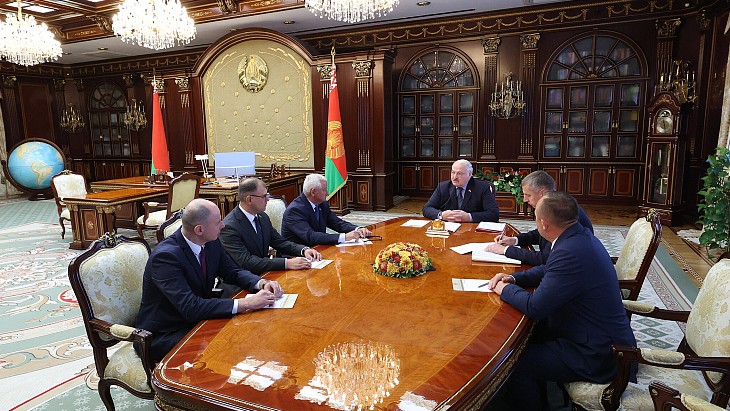
The newly appointed energy minister, Alexei Kushnarenko, speaking to reporters after the president announced the changes, was quoted by the official Belta news agency as saying: "As far as the Belarusian nuclear power plant is concerned, a group of experts is working on it. I will get actively involved in this work and there is no doubt that I will work out an opinion, which will be presented for consideration."
Previous Energy Minister Victor Karankevich has been appointed deputy prime minister. His successor was previously CEO of gas and fuel distribution corporation Beltopgaz.
Kushnarenko said the ministry would be geared towards ensuring quality power supplies to consumers "because essentially the energy industry is the blood system of the economy, the most important component in the life support of the population", Belta quoted him as saying.
In comments published on the Energy Department's Telegram account, he said: "The main thing that will be emphasised is the progressive development of the country's fuel and energy complex. Everything necessary is in place for this."
The background
The existing Belarus nuclear power plant is located in Ostrovets in the Grodno region. A general contract for the construction was signed in 2011, with first concrete in November 2013. Rosatom began construction of unit 2 in May 2014. There are now six VVER-1200 reactors in operation in total, with four in Russia. The first Ostrovets power unit was connected to the grid in November 2020 and, the energy ministry says, the plant will produce about 18.5 TWh of electricity per year, equivalent to 4.5 billion cubic metres of natural gas, with an annual effect on the country's economy of about USD550 million. The second unit was put into commercial operation on 1 November 2023. Together they are generating about one-quarter of the country's electricity.
The country has been considering the option of a second nuclear power plant, with Karankevich saying in December 2023 that experts were looking into the costs and the requirements for future electricity capacity growth, saying: "We intend to reach 44 billion kWh of electricity in 2025. By 2030 we have to reach 47 billion kWh ... as we decide in favour of the second nuclear power plant or the third unit (at Ostrovet), we have to analyse the year 2040 instead of 2030 or 2035." He said that if a second nuclear power plant was built, Belarus would become a world leader in terms of share of its energy which comes from nuclear.